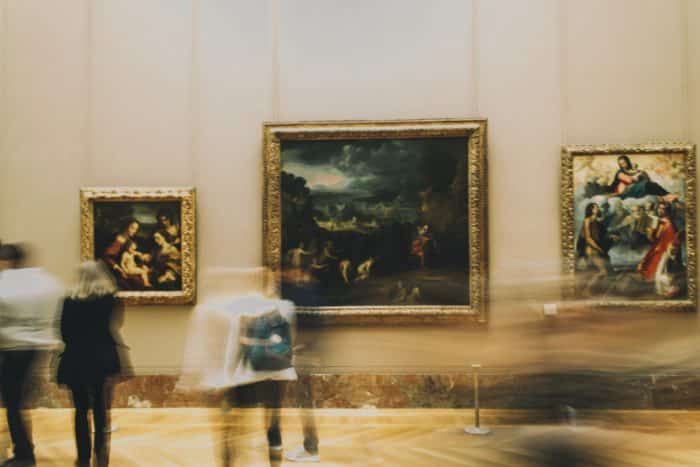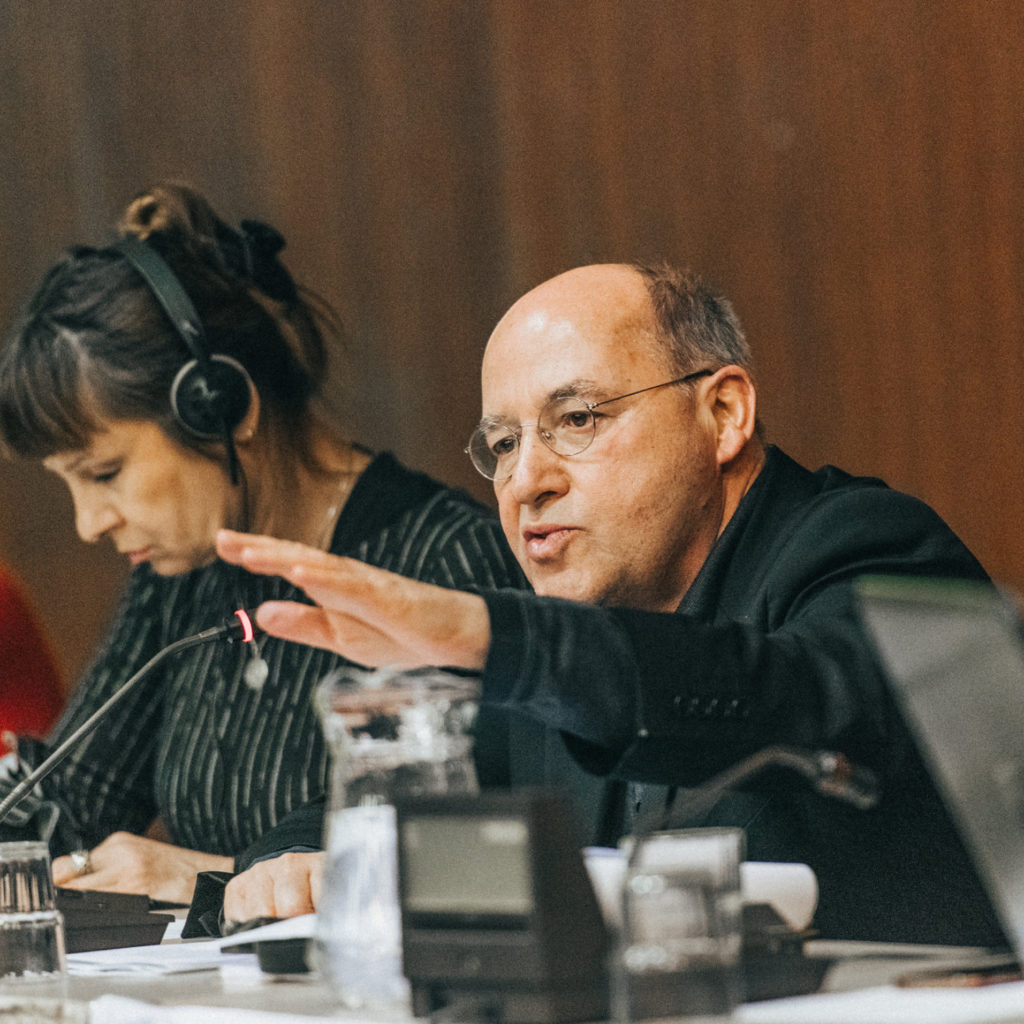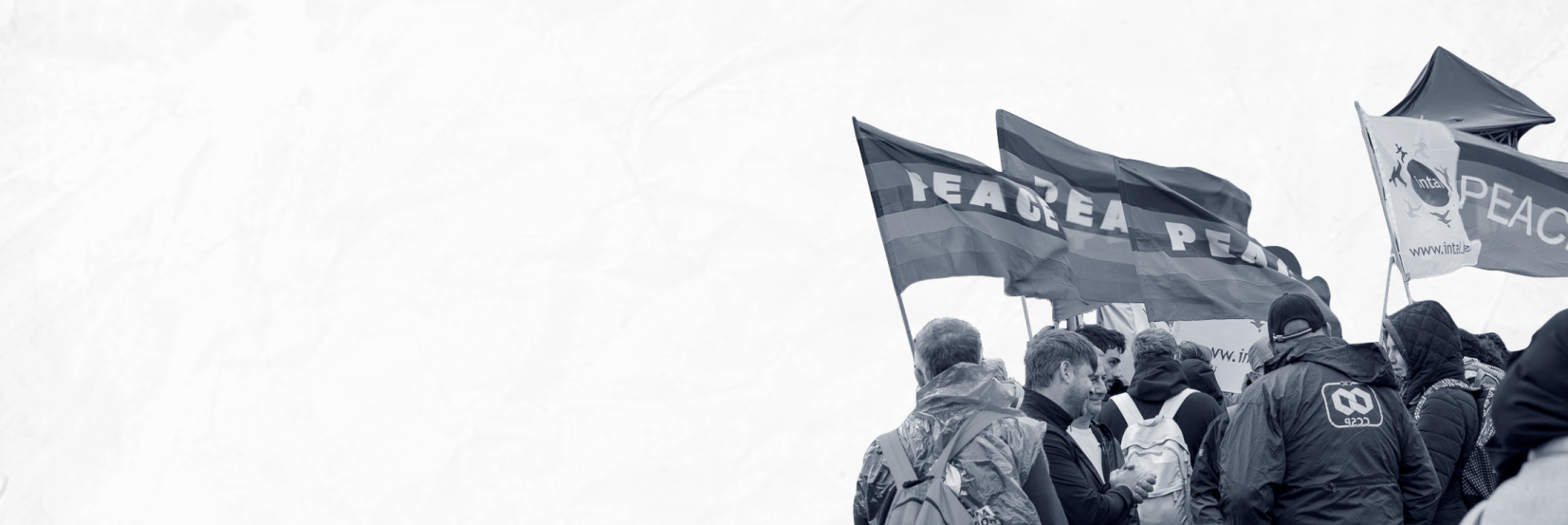
Art & Culture
Culture for all, right away!

Culture is an essential good.
It allows us to understand the world in all its facets. It makes it possible both to distinguish the peoples and to bring them closer together. Because if we identify it very often with creators, artists…
It is also (and perhaps especially) what makes it possible to understand society, the world; to position oneself and express a critical, citizen look; in short, to emancipate oneself.
Full-fledged workers
Artists and other cultural workers are workers in their own right. They are permanently so because intermittency is not a moment of idleness, it is also a time of repetition, composition, study, research… A time that leads to creation, representation, dissemination…
The EL will work to ensure that the EU encourages the States to create a statute for both creative and performing artists. A status that will provide them with a sufficient income and get them out of a precarious situation inconceivable in the 21st century. Examples already exist in different European countries, so the EU can build on these experiences and promote them.


Financial resources for the development of culture
If national sovereignty must be respected within the EU, we cannot accept a situation that contributes to the belief that culture is a matter for the rich, the privileged. The obstacle is often the lack of financial means. Every woman and man, whatever their social condition, is the bearer of a culture that is the product of their working and living conditions. Through culture, many associations strive to get out of the isolation and despair of the men and women that the system rejects. These associations must be supported.
The EL supports the proposal put forward in a motion widely adopted by the European Parliament to devote 2% of the Union’s GDP to support culture.
Uberisation, i.e. the undermining of labour laws that are protected by joint agreements controlled by the trade unions, is affecting certain sectors of commerce and seems to be spreading to other professions, including those linked to culture.
The EL will spare no effort to ensure that labour law is rigorously respected and extended where it is still lacking. There can be no question of tolerating the precariousness of work for the sole benefit of capital.

The question of gender is also a cultural question
Violence, harassment and discrimination against women affect all sectors of society. The cultural world is no exception. Discrimination is particularly blatant in the fees paid by artists, and in the highlighting of female roles in relation to male roles. It is also very important in the allocation of positions of responsibility in cultural institutions. The management of museums or theatres is systematically assigned to men.
The EL has made the fight against violence against women a priority. It also fights tirelessly against all forms of discrimination.

Culture cannot be a weapon of war
In a world where war spreads to our borders, it is fundamental that the cultures of peoples are respected and continue to work for their rapprochement and therefore for Peace. The works of some ancient artists do not only belong to their homeland of origin, they are part of the heritage of Humanity.
The EL opposes any ostracism against artists who have no responsibility for the ongoing conflicts and strongly condemns the repression of Russian artists who oppose the war.
Migration has always been an enrichment for culture
Today, Europe represents a vital hope for women, men and children fleeing poverty, hunger, wars and dictatorships. Tomorrow, it will be people fleeing the consequences of climate change. A dignified reception policy is the most beautiful sign of a democratic and humane society. The fact that governments deliberately allow hundreds of people to die at sea is a sign of genuine barbarism.
Life has shown, however, that the contribution of migration has often been beneficial for welcoming peoples. Culture itself has been enriched. An indigenous culture is itself the result of very ancient migrations whether artistic, gastronomic, architectural, musical … Far from being competitors, new cultures enrich themselves and peoples.
The EL is committed to promoting an inclusive cultural policy within the EU that is both respectful of indigenous cultures and welcoming to new cultures.

For another political and cultural approach to digital technology in education
The development of new technologies is a revolution comparable to the industrial revolution of the 19th century. It fundamentally changes the way we live and profoundly transforms whole sections of society. This is the case for teaching, which deserves special attention and real vigilance because of the repercussions of the Covid-19 crisis.
Indeed, this and the ensuing lockdown have put forward distance learning. A breach has thus been opened to profoundly transform education itself. This transformation should prompt us to reflect in depth on the impact that the intensification of the use of digital technology could have. Capitalism has understood that these digital tools could completely transform the very orientation of education, which would no longer be to educate young girls and boys to become full citizens, with scientific and cultural tools to be actors in society, but future workers trained for the needs of the company. School curricula would no longer be developed by pedagogues, but by private companies at the service of capital.
Digital capitalism is on the march. Far from rejecting the progress that digital technology can represent, education must help students to master it and not suffer it. Capitalism, which insidiously imposes itself, must be opposed by another cultural approach that must remain at the service of working people and not replace them.

For a multiple culture without taboos
Whether in the cities it governs, or in the states where it is brought to power, the extreme right attacks culture, reducing it to manifestations exalting narrow nationalism, or leaving it without means if this culture wants to be critical and innovative. It censors books in the name of moral or religious principles of another age.
For the EL, the EU, which is in itself a melting pot of diverse cultures, must support artists and artistic creation without taboos.
News about culture

Related press releases
Relevant Working Groups

contact us!
Want to join the EL ? Any questions ?
Get in touch with us by mail, we will get back to you as soon as possible.